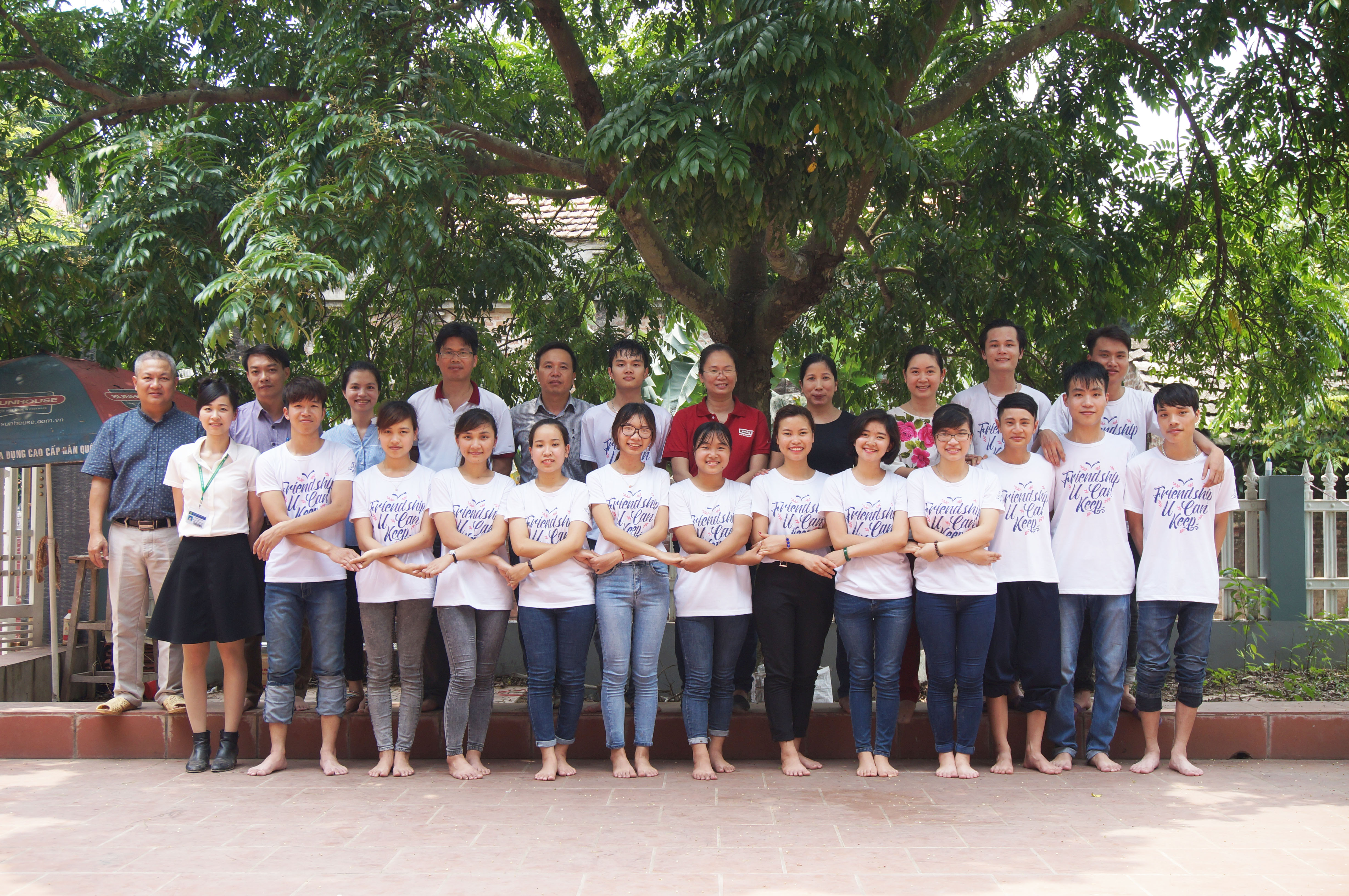Field trip enhances learning for agronomy students
 |
| Students and Dekalb Vietnam employees taking part in the field trip |
Students in need of practical knowledge
Many recruitment companies and employers have complained that Vietnamese graduates have good theoretical knowledge but lack practical experience. Therefore, employers almost always have to train their recruits from the beginning.
At the same time, internship positions at many companies consist mostly of being ordered around and fetching coffee for senior workers instead of doing real work. Not many students receive thorough guidance during their internship and bring back a wholly made-up assessment report to their universities. Whether students get practical knowledge depends on their own initiative.
Therefore, an internship in a professional environment where one gets to actually apply what he or she have learnt in school to real-life situations and gain practical knowledge is a dream for almost all students.
In this context, many schools have been actively working with companies to create meaningful internship opportunities for their second or third-year students. The Biotechnology Faculty of VNUA is an example. Recently, the faculty has been working with many leading biotechnology companies to give students short but meaningful internships where they can apply what they learn on actual plants.
Invaluable field experience
The internship of the group of students from the K59 cohort of the Biotechnology Faculty is held at a corn field in Phu Chau commune of Ba Vi district of Hanoi by Dekalb Vietnam. Though only two days long, the internship has helped students fill in some gaps in their theoretical knowledge. It is a breath of fresh air to be able to leave the classroom to go to the field, so all the students were excited to participate.
The students received instruction from Dekalb Vietnam employees. A biotechnology expert talked to students about how to choose plant breeds, how to experiment on the field, based on what criteria they need to pick a corn breed that would best meet market demand, and how to distinguish between the multiple kinds of pests and diseases affecting corn plants.
The students not only learned about the technical background work, but also about the work of the market development team or the legal team of the company. They also visited and assessed the 20 types of new breeds created by Dekalb Vietnam. Even though it was early summer and the sun was beating down on the field, the students were eager to try their hands at the job of an actual agronomist.
“Though the internship only lasted for two days, we have learnt a lot of practical knowledge. After listening to the instructions, we did the job of an agronomist ourselves. We no longer only know theory. We can assess the characteristics of corn in real life and saw with our eyes the pests and diseases. The knowledge that we learn in school would be sorely lacking without this practice,” said student Vu Khanh Linh
“When I picked my major I was honestly not sure what it is and what I would learn and what I would do after graduation. This short internship helped me understand biotechnology more,” said student Pham Hong Son. “This is the first time that we see the corn fields that Vietnamese farmers are working on and compare non-GMO seeds and GMO-seeds. Sessions like this help us a lot in getting familiar with real life.”
“We would like to thank the employees of Dekalb Vietnam for this opportunity for our students every year so that they can see clearer the career paths available to them after graduation. After the two days at the field, they will come back to school and continue reaching for their dream of being part of a modern agricultural sector and support biotechnology in Vietnam in the near future,” said Nguyen Quoc Trung, MA, professor at the faculty.
What the stars mean:
★ Poor ★ ★ Promising ★★★ Good ★★★★ Very good ★★★★★ Exceptional
Latest News
More News
- 14th National Party Congress wraps up with success (January 25, 2026 | 09:49)
- Congratulations from VFF Central Committee's int’l partners to 14th National Party Congress (January 25, 2026 | 09:46)
- List of newly-elected members of 14th Political Bureau announced (January 23, 2026 | 16:27)
- 14th Party Central Committee unanimously elects To Lam as General Secretary (January 23, 2026 | 16:22)
- List of members of 14th Party Central Committee announced (January 23, 2026 | 09:12)
- Highlights of fourth working day of 14th National Party Congress (January 23, 2026 | 09:06)
- Press provides timely, accurate coverage of 14th National Party Congress (January 22, 2026 | 09:49)
- Press release on second working day of 14th National Party Congress (January 22, 2026 | 09:19)
- Minister sets out key directions to promote intrinsic strength of Vietnamese culture (January 22, 2026 | 09:16)
- 14th National Party Congress: Renewed momentum for OVs to contribute to homeland (January 21, 2026 | 09:49)
















 Mobile Version
Mobile Version